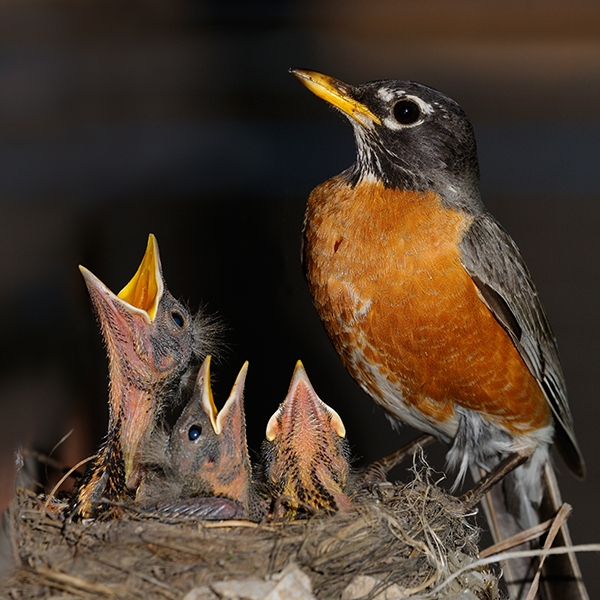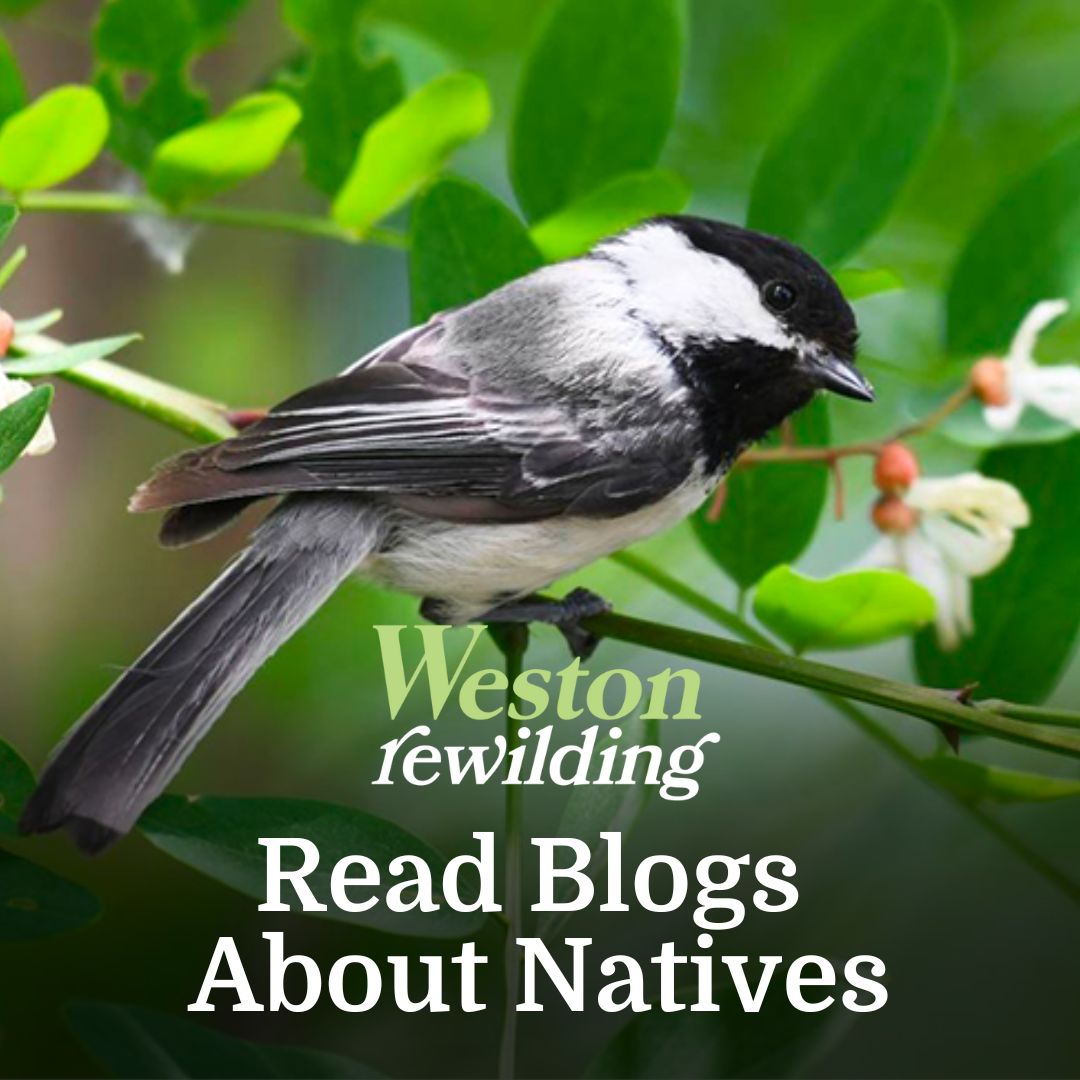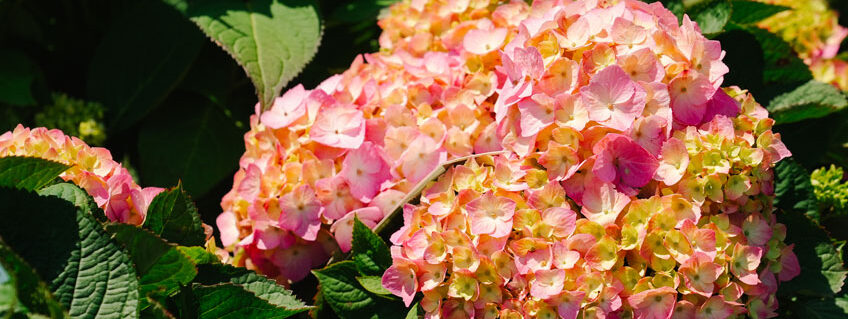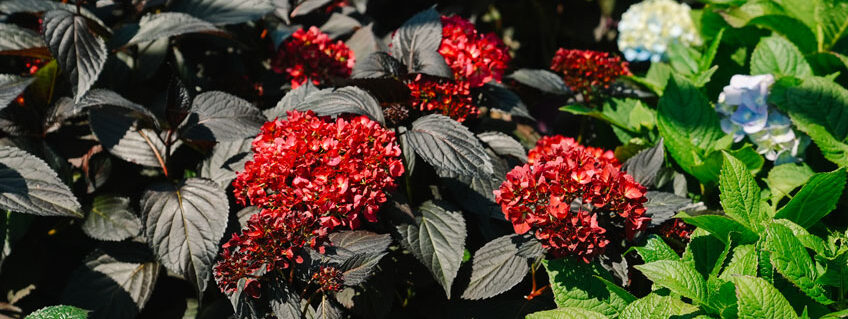When you come across a helpless-looking baby bird out of its nest, it’s hard to resist the overpowering urge to come to the rescue.
But most of the time it’s best to do nothing. Many birds that people try to rescue are still being cared for by their parents (even if you can’t see them) and should be left alone.
Remember: Young birds face naturally tough odds. Only 30% of young songbirds survive their first year of life. This is nature’s way of maintaining population sizes that the environment can support.
Here’s a primer on when to take action for songbirds (baby ducks or geese require a different approach); when in doubt, contact a licensed wildlife rehabilitator.
Assess for Injury
The first thing to do when you find a baby songbird is to figure out if it’s injured. Baby birds can naturally look weak, but if you see blood or other obvious damage, contact a licensed wildlife rehabilitator.
You should also call a rehabilitator if you know a cat attacked a bird; felines transmit deadly bacterial infections with even mild scratches.
Determine Age
Baby birds go through three stages:
- Hatchling (usually 0-3 days old). It hasn’t yet opened its eyes and may have wisps of down on its body. It’s not ready to leave the nest.
- Nestling (usually 3-13 days old). Its eyes are open, and its wing feathers may look like tubes because they’ve yet to break through their protective sheaths. It’s also not ready to leave the nest.
- Fledgling (13-14 days old or older). This bird is fully feathered. Its wings and tail may be short, and it may not be a great flyer, but it can walk, hop, or flutter. It has left the nest, though its parents may be nearby, taking good care of it.
Help Hatchlings and Nestlings
If you find a hatchling or a nestling on the ground and you can see its nest, you should try to safely return it. Contrary to popular belief, birds do not have a well-developed sense of smell. Therefore, the parents won’t know if a young bird has been touched by people and will not abandon their young.
If there’s no nest, you can make one by fastening a small wicker basket (sides no higher than 4 inches) to a branch. Cut two pieces of wire to 18-inch lengths and thread them up through the bottom of the basket and down again. Line the basket with dry grass, and securely wire it to the top of a branch in the same tree or shrub as the nest. Place the bird inside the basket.
Give Fledglings Room to Grow
If you find a fledgling, the best course of action is to leave it alone. As awkward as a fledgling bird may look, this is natural stage, and the parents are most likely nearby, hunting for food and keeping watch. If the bird is in immediate danger, you can put it in a nearby bush or tree.
Don’t Raise Baby Birds Yourself! It’s illegal to bring a baby bird home and try to raise it.
Most young birds won’t survive if cared for by well meaning but inexperienced people. Those that do survive will be at a disadvantage. They’ll have missed important lessons that they would have learned from their parents, such as how to find food and water in the wild and how to avoid predators.
Protect Baby Birds from Cats
While all birds are threatened by outdoor cats, baby birds are especially vulnerable. Birds should never be removed from the wild to protect them from cats or other predators. If there is a baby bird on the ground and a cat nearby, put the cat indoors until the bird is able to fly. If the cat belongs to a neighbor, ask the owner to remove the cat or, when the owner is not known, spray the cat with water to encourage it to leave the property.
Birds and the Law
Birds are protected by federal laws under the Migratory Bird Treaty Act (MBTA) of 1918 as well as by Massachusetts state laws. Unless you’re a licensed wildlife rehabilitator, it’s illegal to keep wild birds in your possession. The only exceptions are non-native species: House Sparrows, European Starlings, and Pigeons.
From MassAudubon.org








